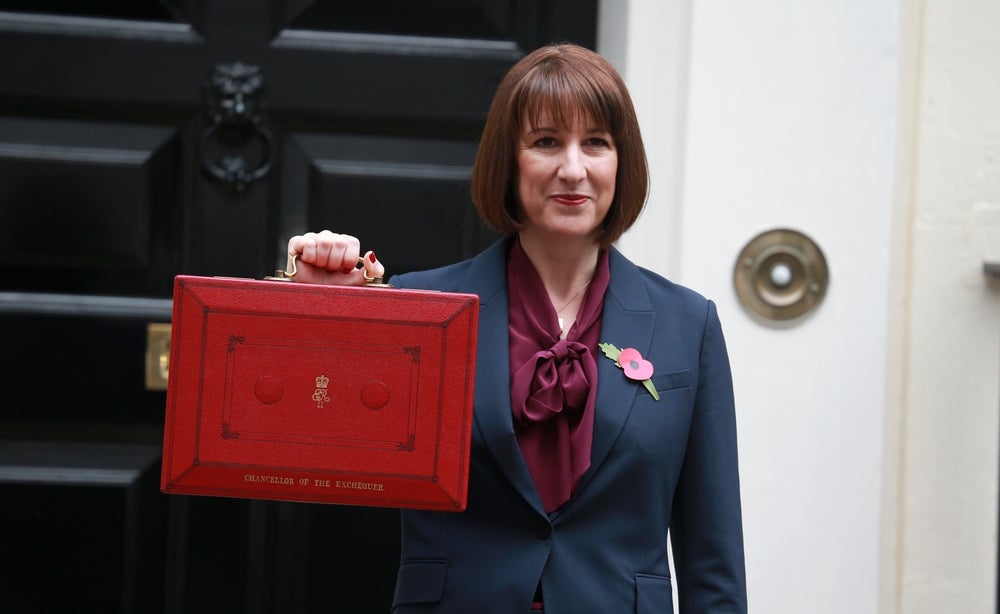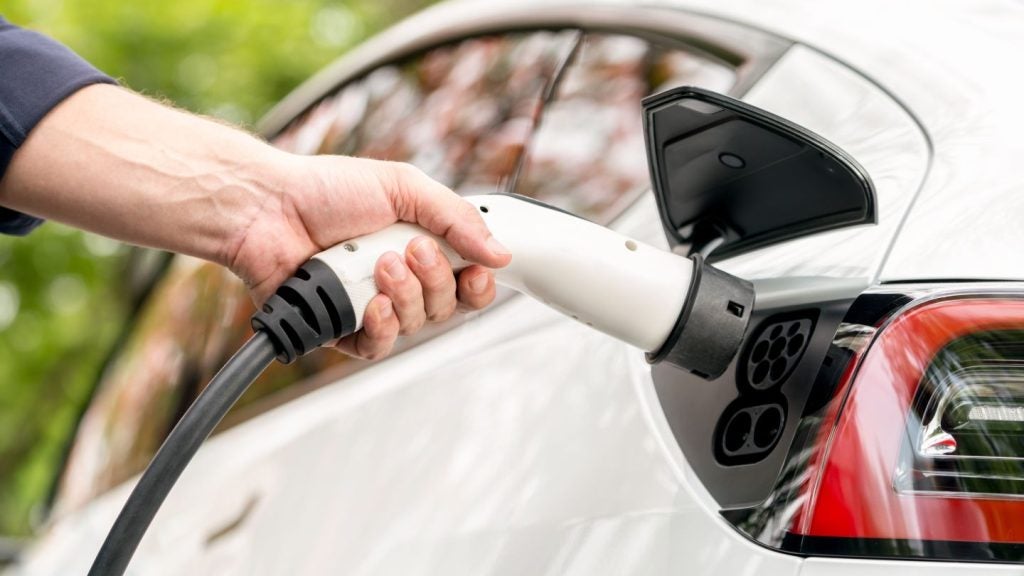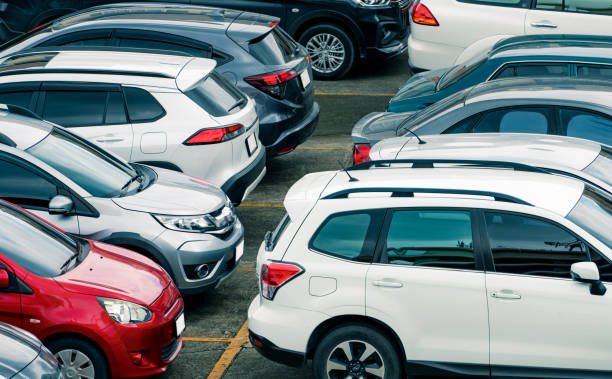
With a new Labour government in power and Rachel Reeves delivering the first budget from a Labour chancellor in over 15 years, there was heightened anticipation over the policies that would shape the economy’s future.
Presented on 30 October, this year’s budget was more than a financial roadmap for the year ahead – it set the tone for Labour’s first term in office and outlined its economic priorities.
After years of political and economic turbulence, industries across the UK, including the automotive and car finance sectors, were eager for a sense of direction and stability.
The budget offered clarity in some areas, but its implications for motorists and businesses left room for debate, particularly around the ongoing transition to electric vehicles (EVs) and affordability challenges for new car buyers.
As Paul Burgess, CEO of Startline Motor Finance tells us, “Probably the most important aspect of the budget for the motor industry is simply that it has finally happened and there were few real surprises, with almost all of the major moves flagged up in advance.”
However, there were still some unexpected omissions in the budget.
How well do you really know your competitors?
Access the most comprehensive Company Profiles on the market, powered by GlobalData. Save hours of research. Gain competitive edge.

Thank you!
Your download email will arrive shortly
Not ready to buy yet? Download a free sample
We are confident about the unique quality of our Company Profiles. However, we want you to make the most beneficial decision for your business, so we offer a free sample that you can download by submitting the below form
By GlobalData“Labour is known for its commitment to strong green credentials, so it was surprising that there weren’t more measures announced to support the uptake of Electric Vehicles (EVs),” says Daniel Briggs, CEO of specialist emergency services, NHS and armed forces car discount provider, Motorfinity.
“There remain great tax incentives for businesses that choose to use EVs for their corporate fleet – but this is a small percentage of the UK population. To encourage people, I would like to see more public-focused EV initiatives, like those that have been used successfully by our European counterparts, such as the reduced road tolls or free public parking that has been offered in Norway.”
For most motorists, the budget’s headline was that there would be no change to fuel duty, however, the overall cost of new car ownership has still gone up for many people due to changes to Vehicle Excise Duty that will come into effect next April.
One of the government’s primary goals in the automotive sector is to encourage the transition to EVs, which is why the first-year rate for zero-emission vehicles is just £10. However, hybrid vehicles tell a different story. Those emitting 1-50 grams of CO2 per kilometre will pay a first-year rate of £110, and those emitting 51-75 grams per kilometre will pay £130.
“This jumps even further for petrol and diesel (ICE) vehicles which could see their VED double once the new changes come into force,” Briggs observes. “Of course, these rules are in favour of the lower-emission vehicles, but it’s still generating a considerably higher upfront cost for the majority, and even those driving lower-emission vehicles aren’t immune.”
But even while there are criticisms and concerns to be levelled at the new budget, the mere fact of its arrival will be reassuring to some.
“There has been a long period of drift since the election and some sense that both businesses and consumers have been delaying expenditure until they knew exactly what the budget would contain,” says Burgess. “That wait is now over.”
In the driving seat
But even with that certainty in place, the Vehicle Excise Duty could put a dent in consumer confidence.
“When buying a new car on finance, this first-year upfront cost could be adding hundreds of additional pounds onto the initial price, which could mean customers are priced out of securing the finance they need to get a new car,” says Briggs. “Of course, we’re still a few months away from these changes coming into force, so if people are already in a strong position to purchase now, it could result in a market boost – but with external factors such as interest rates still fluctuating and the cost of living growing, it may put more pressure on people to look to secure these deals before they’re ready.”
Briggs does point out that this may lead people in the market for a new car next year to seriously consider purchasing an EV or hybrid vehicle. However, the transition to EVs must overcome more than costs.
He adds, “Without further support such as investing in the infrastructure needed to make purchasing an EV viable for more people – or offering incentives that put more cash in people’s pockets instead of taking it away – lots of people could simply be priced out of buying a new car.”
For most people, the new budget will be judged in terms of how it affects the typical household budget, and in the automotive sector, that means how it affects drivers.
“While Labour has taken some care to protect what it loosely terms ‘working people’ – including the surprise ongoing freeze in fuel duty – there are moves here that will unavoidably have an impact on how much people have to spend, and it’ll be interesting to see whether all of this affects the used car market in a positive or negative manner during the next few weeks and months,” Burgess says.
Iain Reid, Head of Editorial, at Carwow, also points to the freeze in fuel duty as a pleasant surprise for most drivers.
“Given that for so many of us the car is an essential part of our lives, any increase in fuel prices would have been unwelcome,” he says. “Furthermore, the Government has said it will introduce a requirement for all UK retail petrol-filling stations to report prices and the unavailability of fuel within 30 minutes of a change. There will also be an extra £500 million spent to tackle potholes. Both are welcome, but neither is going to be accomplished overnight.”
Carwow’s consumer survey has already shown that the budget is impacting consumer decisions. 30% of car buyers have reported that they are now more likely to buy used rather than new. Reid points out that this could accelerate an existing trend, as Carwow data shows that used car enquiries generated via the platform increased 63%, year-on-year, at the end of October.
“The survey also found that 37% of car buyers are now more likely to consider a cheaper car than the one they were originally considering,” Reid adds.
While the budget might cause drivers to seek more affordable vehicles, the truth is EVs are less expensive than they have been, but Labour’s budget might change that too.
“At the moment, we’re in a unique position where the price of EVs has now shifted to become much more affordable, and as the market changes, now could be the time to get some of the best rates that have been available so far,” says Briggs. “But this was driven by hugely competitive pricing led by dealers and manufacturers as they head towards the goal of the 2030 EV sales targets. Now, Labour has just announced a consultation on these plans that could loosen these targets, and this could affect the prices of EVs as the pressure to sell them falls.”
VED changes may cause more people to seriously consider purchasing an EV or hybrid vehicle as their next car in 2025, which is good news, but they need more commitment and stability from our government to give them the final push.
Startline has its own figures, from November’s Used Car Tracker, to put alongside CarWow’s. Its surveys say that 63% of those asked claim the budget makes it more likely they’ll replace their car within the next 12 months. 29% say their finances have been unaffected by the budget and 12% that they’ve been improved, while 10% say that they had been waiting for the budget before making a purchasing decision.
“Our research is showing really quite a positive response to the budget from motorists and one that is perhaps at odds with some of the wider commentary being seen across the media,” says Burgess. “It seems as though, having taken a look at the measures that were announced by the Chancellor, the majority of people questioned either feel better or no worse off, and this is giving them the confidence to consider replacing their car in the medium term.
Down to business
As Burgess points out, however, individual drivers are not the only people who are going to be affected by the budget. The businesses that serve them are also going to be affected.
“The biggest share of the higher tax burden is going to fall on businesses, with the increase in employers NI likely to prove especially expensive,” Burgess points out. “The Chancellor would no doubt argue that such costs will be offset over time by Labour’s drive for economic growth, but the OBR forecasts are no better than middling and only time will tell whether that strategy is effective.”
Reid agrees that dealers may find cause for concern in the budget.
“Of the announcements made by the Chancellor, the increase in employer’s National Insurance and higher Capital Gains Tax will be of greatest concern to dealers,” he says.
But even with that taken into account, Reid argues the budget is a positive step for dealers.
“Dealers usually see any form of investment in the economy as good news for both the new and used car markets. Encouragingly, our post-budget survey suggests the measures announced haven’t deterred too many from changing their car,” he points out. “When we asked if the budget has impacted their likelihood of buying a car in the coming months, 21% said they are more likely and 40% said they are just as likely as they were before. 34% said they still intend to buy new over used.”
Briggs argues that many dealers, lenders and consumers will share many concerns over the budget.
“There will always be a desire for rates to come down so lenders and dealers can offer the best prices, and make monthly payments as affordable as possible,” he says. “So this added taxation from the VED changes goes against this, creating an additional cost that will either need to be paid for by the consumer, or absorbed by the business.”
Briggs suggests that more manufacturers could work with dealers to absorb these cost margins to make a more attractive offer for the consumer, to ensure that demand for new cars doesn’t fall due to these new affordability challenges.
In the long run, however, this budget will be judged on what it did to empower the transition to electric vehicles, and how the UK performs against other countries in pursuing that transition.
“The Chancellor said she wants to incentivise the uptake of EVs and confirmed, therefore, that favourable Benefit in Kind tax rates for company car drivers would remain in place,” says Reid. “While they’re no longer exempt from vehicle excise duty from April 2025, EVs will be subject to more favourable first-year tax rates than petrol- and diesel-powered cars.”
One criticism of the budget is that while it is seeking to drive the EV transition, its approach is more stick than carrot.
“Rather than incentivising EV ownership, it looks like (the Chancellor) is instead disincentivising ownership of other types through significant increases in VED rates and Benefit in Kind for non-battery electric vehicles,” Reid says. “The Chancellor’s commitment to investing more than £200 million to accelerate EV charge-point infrastructure isn’t inspiring many more consumers to make the switch to EV.”
Most experts across the automotive industry will tell you that there is no escaping the reality of decarbonisation for our transport solutions, and that deadline is creeping closer. But there is often a big disconnect between a necessary global change and an individual’s consumer choice. The Labour government must now seek to bridge that gap.
“EVs could be the more affordable choice for many, especially now prices have stabilised from dramatic price cuts from the manufacturers – but this was driven by the UK government’s removal of previous discount schemes,” says Briggs. “To take advantage of this unique opportunity, re-instating incentives for the consumer market, not just business buyers, could help to push more motorists who are on the fence, to purchase now – and making commitments to critical infrastructure would support the solid EV future that is so essential in the long term. The VED changes were made with this in mind, but more positive incentives for the public, that support the move through giving them a helping hand rather than pricing out the alternative, could be a welcome move.”
For all the positives of the new budget, it seems there is room to improve. In Carwow’s consumer survey, 66% of those asked answered “No” to whether the autumn budget was good for motorists. 15% said “Yes” and 20% said they were “unsure”. When asked if they thought the Chancellor could have done more for motorists, 77% answered “Yes”, while 81% said they felt the £500 million increase in spending to improve roads “hadn’t gone far enough”.
But perhaps most tellingly, when asked if the Chancellor should have done more to drive the transition to EVs, 34% said “Yes”, while 55% answered “No”.
“It’s clear that the budget has done little to encourage more car buyers to make the switch to EV ownership and, instead, has made a significant portion of consumers reconsider what they can afford when choosing their next car,” says Reid. “In order to encourage more car owners to make the switch to EV, the Government needs to introduce more attractive incentives to not only make EV ownership more affordable but also more appealing.”
UK used car market defies seasonal trends despite economic concerns
UK bus market witnesses 36.1% growth in Q3 2024







